My last two posts focused on bearish divergences in the equity markets, but there are several fundamental factors that are equally bearish. The following article focuses on global trade.
Global Trade
In Mark Magnier's recent column, he reported that
"China's trade with the rest of the world continued to shrink in November, in the latest negative sign for growth in the world's second-largest economy. China's exports fell in November for the fifth consecutive month, as weak global demand continued to weigh on the world's largest manufacturing nation."
This is particularly troubling given China's export driven economy. But China is far from alone.
Jeffry Bartash's recent column unveiled similar problems in the U.S. economy, despite the fact that many economists continue to view the U.S. economy and U.S. equity market with rose-colored glasses:
"Exports dropped 1.4% to $184.1 billion, hitting the lowest level since October 2012. A strong dollar has made it more expensive for U.S. companies such as manufacturers to sell goods and services to foreign customers. A weak global economy has also made it harder for customers outside the U.S. to buy American goods."
While the U.S. and China have the two largest economies in the world, it is also instructive to look at global trade as a whole. Jim Bouldon's recent column did just that:
"Growth rates of global trade observed so far in 2015, have, in the past, been associated with global recession," the Organization for Economic Co-operation and Development said Monday.
Imports into emerging markets are falling sharply, with China accounting for nearly one third of the drop, the OECD said in its outlook for the global economy. "This is deeply concerning. Robust trade and global growth go hand in hand," it said.
Conclusion
Exports in China have dropped for the fifth consecutive month and U.S. exports are at their lowest level in over three years. When taken in aggregate, "Growth rates of global trade observed so far in 2015, have, in the past, been associated with global recession," according to the Organization for Economic Co-operation and Development. The evidence for the bearish case continues to mount.
Print and Kindle Versions of Brian Johnson's 2nd Book are Available on Amazon (75% 5-Star Reviews)
Exploiting Earnings Volatility: An Innovative New Approach to Evaluating, Optimizing, and Trading Option Strategies to Profit from Earnings Announcements.
Print and Kindle Versions of Brian Johnson's 1st Book are Available on Amazon (79% 5-Star Reviews)
Option Strategy Risk / Return Ratios: A Revolutionary New Approach to Optimizing, Adjusting, and Trading Any Option Income Strategy
Trader Edge Strategy E-Subscription Now Available: 20% ROR
The Trader Edge Asset Allocation Rotational (AAR) Strategy is a conservative, long-only, asset allocation strategy that rotates monthly among five large asset classes. The AAR strategy has generated annual returns of approximately 20% over the combined back and forward test period. Please use the above link to learn more about the AAR strategy.
Brian Johnson
Copyright 2015 - Trading Insights, LLC - All Rights Reserved.
About Brian Johnson
I have been an investment professional for over 30 years. I worked as a fixed income portfolio manager, personally managing over $13 billion in assets for institutional clients. I was also the President of a financial consulting and software development firm, developing artificial intelligence based forecasting and risk management systems for institutional investment managers.
I am now a full-time proprietary trader in options, futures, stocks, and ETFs using both algorithmic and discretionary trading strategies.
In addition to my professional investment experience, I designed and taught courses in financial derivatives for both MBA and undergraduate business programs on a part-time basis for a number of years. I have also written four books on options and derivative strategies.



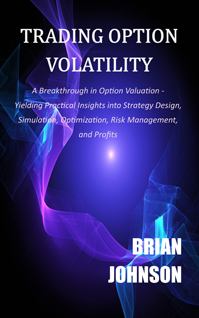
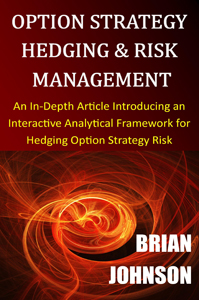
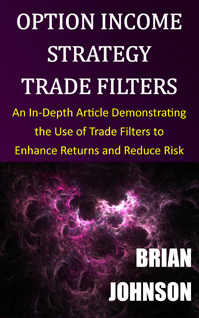
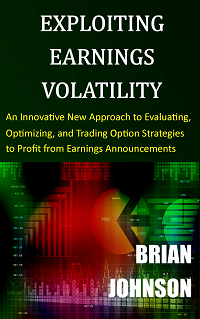
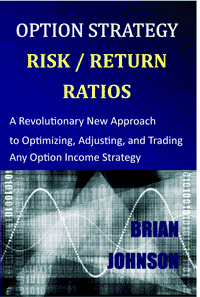


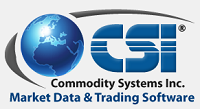
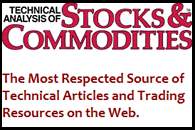
Global Trade at Recession Levels
My last two posts focused on bearish divergences in the equity markets, but there are several fundamental factors that are equally bearish. The following article focuses on global trade.
Global Trade
In Mark Magnier's recent column, he reported that
This is particularly troubling given China's export driven economy. But China is far from alone.
Jeffry Bartash's recent column unveiled similar problems in the U.S. economy, despite the fact that many economists continue to view the U.S. economy and U.S. equity market with rose-colored glasses:
While the U.S. and China have the two largest economies in the world, it is also instructive to look at global trade as a whole. Jim Bouldon's recent column did just that:
Conclusion
Exports in China have dropped for the fifth consecutive month and U.S. exports are at their lowest level in over three years. When taken in aggregate, "Growth rates of global trade observed so far in 2015, have, in the past, been associated with global recession," according to the Organization for Economic Co-operation and Development. The evidence for the bearish case continues to mount.
Print and Kindle Versions of Brian Johnson's 2nd Book are Available on Amazon (75% 5-Star Reviews)
Exploiting Earnings Volatility: An Innovative New Approach to Evaluating, Optimizing, and Trading Option Strategies to Profit from Earnings Announcements.
Print and Kindle Versions of Brian Johnson's 1st Book are Available on Amazon (79% 5-Star Reviews)
Option Strategy Risk / Return Ratios: A Revolutionary New Approach to Optimizing, Adjusting, and Trading Any Option Income Strategy
Trader Edge Strategy E-Subscription Now Available: 20% ROR
The Trader Edge Asset Allocation Rotational (AAR) Strategy is a conservative, long-only, asset allocation strategy that rotates monthly among five large asset classes. The AAR strategy has generated annual returns of approximately 20% over the combined back and forward test period. Please use the above link to learn more about the AAR strategy.
Brian Johnson
Copyright 2015 - Trading Insights, LLC - All Rights Reserved.
About Brian Johnson
I have been an investment professional for over 30 years. I worked as a fixed income portfolio manager, personally managing over $13 billion in assets for institutional clients. I was also the President of a financial consulting and software development firm, developing artificial intelligence based forecasting and risk management systems for institutional investment managers. I am now a full-time proprietary trader in options, futures, stocks, and ETFs using both algorithmic and discretionary trading strategies. In addition to my professional investment experience, I designed and taught courses in financial derivatives for both MBA and undergraduate business programs on a part-time basis for a number of years. I have also written four books on options and derivative strategies.